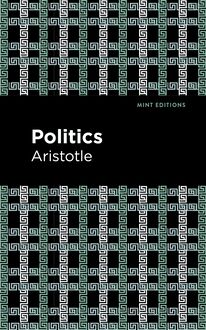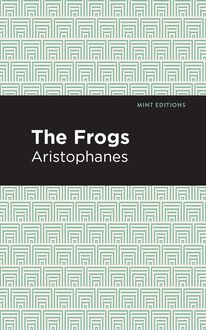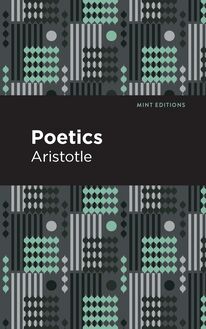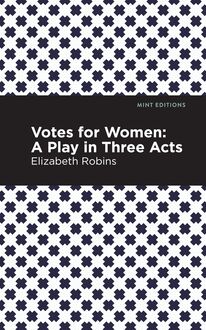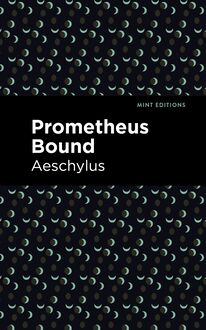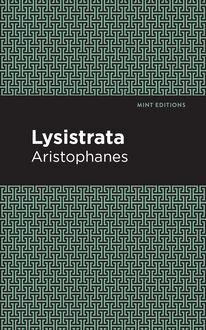-
 Univers
Univers
-
 Ebooks
Ebooks
-
 Livres audio
Livres audio
-
 Presse
Presse
-
 Podcasts
Podcasts
-
 BD
BD
-
 Documents
Documents
-
- Cours
- Révisions
- Ressources pédagogiques
- Sciences de l’éducation
- Manuels scolaires
- Langues
- Travaux de classe
- Annales de BEP
- Etudes supérieures
- Maternelle et primaire
- Fiches de lecture
- Orientation scolaire
- Méthodologie
- Corrigés de devoir
- Annales d’examens et concours
- Annales du bac
- Annales du brevet
- Rapports de stage
La lecture à portée de main
Vous pourrez modifier la taille du texte de cet ouvrage
Découvre YouScribe en t'inscrivant gratuitement
Je m'inscrisDécouvre YouScribe en t'inscrivant gratuitement
Je m'inscrisEn savoir plus
Vous pourrez modifier la taille du texte de cet ouvrage
En savoir plus

Description
Similar to Nicomachean Ethics, Aristotle explores another facet of good living by outlining the best governing practices that benefit the majority, and not the minority. In The Politics, he defines various institutions and how they should operate within an established system.
The Politics provides an analysis of contemporary government as it relates to all people. Aristotle discusses the positive and negative qualities of authority and how they affect civilian life. In eight books, he details the tenets of the political community, including justice, the economy and household management. He recounts the actions of previous administrations, highlighting the differences between a democracy and oligarchy. He also examines the purpose of constitutions and how they can better serve the state.
By studying the past, politicians can navigate and overcome challenges that toppled previous regimes. The Politics contains a strategic framework that can be used in a modern-day context. It offers a comprehensive look at the people and processes expected to maintain law, order and prosperity.
With an eye-catching new cover, and professionally typeset manuscript, this edition of The Politics is both modern and readable.
Sujets
Informations
| Publié par | Mint Editions |
| Date de parution | 01 décembre 2020 |
| Nombre de lectures | 0 |
| EAN13 | 9781513273013 |
| Langue | English |
| Poids de l'ouvrage | 1 Mo |
Informations légales : prix de location à la page 0,0500€. Cette information est donnée uniquement à titre indicatif conformément à la législation en vigueur.
Extrait
Politics: A Treatise on Government
Aristotle
Politics was first published in 1912.
This edition published by Mint Editions 2020.
ISBN 9781513268019 | E-ISBN 9781513273013
Published by Mint Editions®
minteditionbooks.com
Publishing Director: Jennifer Newens
Design & Production: Rachel Lopez Metzger
Translation: William Ellis, A.M.
Typesetting: Westchester Publishing Services
C ONTENTS B OOK I B OOK II B OOK III B OOK IV B OOK V B OOK VI B OOK VII B OOK VIII
BOOK I
I
A s we see that every city is a society, and every society Ed. is established for some good purpose; for an apparent good is the spring of all human actions; it is evident that this is the principle upon which they are every one founded, and this is more especially true of that which has for its object the best possible, and is itself the most excellent, and comprehends all the rest. Now this is called a city, and the society thereof a political society; for those who think that the principles of a political, a regal, a family, and a herile government are the same are mistaken, while they suppose that each of these differ in the numbers to whom their power extends, but not in their constitution: so that with them a herile government is one composed of a very few, a domestic of more, a civil and a regal of still more, as if there was no difference between a large family and a small city, or that a regal government and a political one are the same, only that in the one a single person is continually at the head of public affairs; in the other, that each member of the state has in his turn a share in the government, and is at one time a magistrate, at another a private person, according to the rules of political science. But now this is not true, as will be evident to any one who will consider this question in the most approved method. As, in an inquiry into every other subject, it is necessary to separate the different parts of which it is compounded, till we arrive at their first elements, which are the most minute parts thereof; so by the same proceeding we shall acquire a knowledge of the primary parts of a city and see wherein they differ from each other, and whether the rules of art will give us any assistance in examining into each of these things which are mentioned.
II
N ow if in this particular science any one would attend to its original seeds, and their first shoot, he would then as in others have the subject perfectly before him; and perceive, in the first place, that it is requisite that those should be joined together whose species cannot exist without each other, as the male and the female, for the business of propagation; and this not through choice, but by that natural impulse which acts both upon plants and animals also, for the purpose of their leaving behind them others like themselves. It is also from natural causes that some beings command and others obey, that each may obtain their mutual safety; for a being who is endowed with a mind capable of reflection and forethought is by nature the superior and governor, whereas he whose excellence is merely corporeal is formect to be a slave; whence it follows that the different state of master and slave is equally advantageous to both. But there is a natural difference between a female and a slave: for nature is not like the artists who make the Delphic swords for the use of the poor, but for every particular purpose she has her separate instruments, and thus her ends are most complete, for whatsoever is employed on one subject only, brings that one to much greater perfection than when employed on many; and yet among the barbarians, a female and a slave are upon a level in the community, the reason for which is, that amongst them there are none qualified by nature to govern, therefore their society can be nothing but between slaves of different sexes. For which reason the poets say, it is proper for the Greeks to govern the barbarians, as if a barbarian and a slave were by nature one. Now of these two societies the domestic is the first, and Hesiod is right when he says, “First a house, then a wife, then an ox for the plough,” for the poor man has always an ox before a household slave. That society then which nature has established for daily support is the domestic, and those who compose it are called by Charondas homosipuoi , and by Epimenides the Cretan homokapnoi ; but the society of many families, which was first instituted for their lasting, mutual advantage, is called a village, and a village is most naturally composed of the descendants of one family, whom some persons call homogalaktes, the children and the children’s children thereof: for which reason cities were originally governed by kings, as the barbarian states now are, which are composed of those who had before submitted to kingly government; for every family is governed by the elder, as are the branches thereof, on account of their relationship thereunto, which is what Homer says, “Each one ruled his wife and child;” and in this scattered manner they formerly lived. And the opinion which universally prevails, that the gods themselves are subject to kingly government, arises from hence, that all men formerly were, and many are so now; and as they imagined themselves to be made in the likeness of the gods, so they supposed their manner of life must needs be the same. And when many villages so entirely join themselves together as in every respect to form but one society, that society is a city, and contains in itself, if I may so speak, the end and perfection of government: first founded that we might live, but continued that we may live happily. For which reason every city must be allowed to be the work of nature, if we admit that the original society between male and female is; for to this as their end all subordinate societies tend, and the end of everything is the nature of it. For what every being is in its most perfect state, that certainly is the nature of that being, whether it be a man, a horse, or a house: besides, whatsoever produces the final cause and the end which we desire, must be best; but a government complete in itself is that final cause and what is best. Hence it is evident that a city is a natural production, and that man is naturally a political animal, and that whosoever is naturally and not accidentally unfit for society, must be either inferior or superior to man: thus the man in Homer, who is reviled for being “without society, without law, without family.” Such a one must naturally be of a quarrelsome disposition, and as solitary as the birds. The gift of speech also evidently proves that man is a more social animal than the bees, or any of the herding cattle: for nature, as we say, does nothing in vain, and man is the only animal who enjoys it. Voice indeed, as being the token of pleasure and pain, is imparted to others also, and thus much their nature is capable of, to perceive pleasure and pain, and to impart these sensations to others; but it is by speech that we are enabled to express what is useful for us, and what is hurtful, and of course what is just and what is unjust: for in this particular man differs from other animals, that he alone has a perception of good and evil, of just and unjust, and it is a participation of these common sentiments which forms a family and a city. Besides, the notion of a city naturally precedes that of a family or an individual, for the whole must necessarily be prior to the parts, for if you take away the whole man, you cannot say a foot or a hand remains, unless by equivocation, as supposing a hand of stone to be made, but that would only be a dead one; but everything is understood to be this or that by its energic qualities and powers, so that when these no longer remain, neither can that be said to be the same, but something of the same name. That a city then precedes an individual is plain, for if an individual is not in himself sufficient to compose a perfect government, he is to a city as other parts are to a whole; but he that is incapable of society, or so complete in himself as not to want it, makes no part of a city, as a beast or a god. There is then in all persons a natural impetus to associate with each other in this manner, and he who first founded civil society was the cause of the greatest good; for as by the completion of it man is the most excellent of all living beings, so without law and justice he would be the worst of all, for nothing is so difficult to subdue as injustice in arms: but these arms man is born with, namely, prudence and valour, which he may apply to the most opposite purposes, for he who abuses them will be the most wicked, the most cruel, the most lustful, and most gluttonous being imaginable; for justice is a political virtue, by the rules of it the state is regulated, and these rules are the criterion of what is right.
III
S ince it is now evident of what parts a city is composed, it will be necessary to treat first of family government, for every city is made up of families, and every family has again its separate parts of which it is composed. When a family is complete, it consists of freemen and slaves; but as in every subject we should begin with examining into the smallest parts of which it consists, and as the first and smallest parts of a family are the master and slave, the husband and wife, the father and child, let us first inquire into these three, what each of them may be, and what they ought to be; that is to say, the herile, the nuptial, and the paternal. Let these then be considered as the three distinct parts of a family: some think that the providing what is necessary for the family is something different from the government of it, others that this is the greatest part of it; it shall be considered separately; but we will first speak of a master and a slave, that we may both understand the nature of those things which are absolutely necessary, and
-
 Univers
Univers
-
 Ebooks
Ebooks
-
 Livres audio
Livres audio
-
 Presse
Presse
-
 Podcasts
Podcasts
-
 BD
BD
-
 Documents
Documents
-
Jeunesse
-
Littérature
-
Ressources professionnelles
-
Santé et bien-être
-
Savoirs
-
Education
-
Loisirs et hobbies
-
Art, musique et cinéma
-
Actualité et débat de société
-
Jeunesse
-
Littérature
-
Ressources professionnelles
-
Santé et bien-être
-
Savoirs
-
Education
-
Loisirs et hobbies
-
Art, musique et cinéma
-
Actualité et débat de société
-
Actualités
-
Lifestyle
-
Presse jeunesse
-
Presse professionnelle
-
Pratique
-
Presse sportive
-
Presse internationale
-
Culture & Médias
-
Action et Aventures
-
Science-fiction et Fantasy
-
Société
-
Jeunesse
-
Littérature
-
Ressources professionnelles
-
Santé et bien-être
-
Savoirs
-
Education
-
Loisirs et hobbies
-
Art, musique et cinéma
-
Actualité et débat de société
- Cours
- Révisions
- Ressources pédagogiques
- Sciences de l’éducation
- Manuels scolaires
- Langues
- Travaux de classe
- Annales de BEP
- Etudes supérieures
- Maternelle et primaire
- Fiches de lecture
- Orientation scolaire
- Méthodologie
- Corrigés de devoir
- Annales d’examens et concours
- Annales du bac
- Annales du brevet
- Rapports de stage


